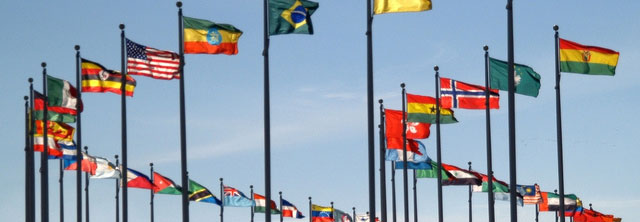18 October 2015.
The UNCAC Coalition calls on UNCAC States parties to pledge support for transparency and public consultation in addressing corruption.

Image: Creative Commons, Flickr / theclyde
The United Nations Convention against Corruption (UNCAC) is one of the most important achievements in the global fight against corruption. To date 177 States parties have declared their commitment to a broad array of measures to reduce corruption in their countries.
With its great number of signatories and ratifications around the world, its comprehensive content and innovative Review Mechanism, the UNCAC has changed the political discourse on corruption and proved itself a powerful global instrument.
One of its greatest challenges, however, has been to ensure that civil society fulfils its fundamental role in contributing to UNCAC implementation, by shining a light when UNCAC provisions are overlooked and holding governments accountable.
Who would argue that the UNCAC doesn’t need civil society to turn its promises into action?
But the rights of civil society to participate in the Review Mechanism are still under debate. UNODC organised briefings for NGOs about the outcomes of the review process but civil society has so far been excluded from the Review Mechanism’s Implementation Review Group and subsidiary body meetings. This is despite Article 13 of the UNCAC defining the importance of transparency and civil society participation in countering corruption.
The upcoming UNCAC Conference of States Parties in St Petersburg (COSP) provides a remarkable opportunity to move the discussion forward on civil society participation in the Review Mechanism.
After persistent negotiations between states parties the following agenda item has been accepted: “Implementation of article 63, paragraph 4 (c), of the Convention, including discussion on cooperation with relevant international and regional organizations and mechanisms and non-governmental organizations.”
We hope this will lead to a constructive debate. An introduction to previous discussions and positions is available in an official COSP document, prepared by Finland. This is a must-read ahead of the conference to understand the importance of civil society contributions, as well as the counter-arguments.
A key obstacle to civil society participation at the international level is the way in which NGOs and other civil society members are perceived, treated and regulated in different countries. Where some governments consider them enemies, others embrace them as key partners in the fight against corruption.
A consensus on this seems unrealistic today, but we believe that important steps can move us towards a more open and inclusive process in the second Review Mechanism cycle. In order to promote best practice and highlight the countries that are leading by example in promoting civil society participation, we are asking governments to sign a Pledge with six corresponding principles..
We have developed a campaign site for our initiative on www.openupuncac.org. Here you can find the Pledge in four languages (English, French, Spanish and Russian). We will continuously update the site with petition results and country sign-ups.
We hope that this will contribute to building momentum in St Petersburg for supporting transparency and civil society participation.
We are convinced that it is impossible to fight corruption from behind closed doors. If you agree, please spread the word: #openupuncac and engage your government to sign the Pledge.
Contact
For further information, please contact Gillian Dell, TIS Conventions Unit / UNCAC Coalition Secretariat.
Translations
Read the UNCAC Coalition Pledge in Arabic, English, French, Spanish and Russian.



